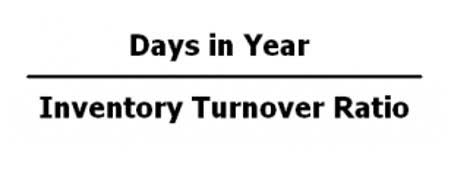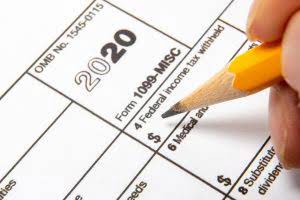Content
To sell an older bond with a lower interest rate, you might have to sell it at a discount. through spread betting and CFDs, and trade on our most popular bond and share ETFs. These have varied liquidity, dividend payouts and other risk rates. We offer a wide range of exchange-traded funds, including those from iShares, Vanguard and SPDR. Stocks and bonds are the most common assets available to investors.
What can you do with a 300k inheritance?
Key Takeaways. If you inherit a large amount of money, take your time in deciding what to do with it. A federally insured bank or credit union account can be a good, safe place to park the money while you make your decisions. Paying off high-interest debts such as credit card debt is one good use for an inheritance.
For many people, owning a business or buying real estate are out of reach. However, putting some of your money into investments such as stocks and bonds is within reach of anyone with disposable income. Another important difference between stocks and bonds is that they tend to have an inverse relationship in terms of price — when stock prices rise, bonds prices fall, and vice versa.
More education on stocks
Instead of investing these profits in growth, they often distribute them among shareholders — this distribution is a dividend. Preferred stockacts much more like a bond than common stock. It pays a fixed yield, and the prices tend to be less volatile than common stock, but also provides less potential for total return. Preferred stockholders usually don’t have voting rights, but they receive dividend payments before common stockholders do, and have priority over common stockholders if the company goes bankrupt.

Spreading your investment funds among various classes of stocks and bonds — diversifying — is the choice for many. A mix of stable, fixed-income investments and stocks is a key ingredient to working toward meeting long-term financial goals. Choosing the right mix of stocks and bonds can be one of the most basic yet confusing decisions facing any investor. https://www.bookstime.com/ In general, the role of stocks is to provide long-term growth potential and the role of bonds is to provide an income stream. The question is how these qualities fit into your investment strategy. To purchase stocks, investors can access any one of 13 registered stock exchanges in the U.S., or an international stock exchange, via their brokerage.
History has shown that owning stocks and bonds is a good way to build wealth. According to data compiled by Vanguard, a 60/40 portfolio — 60% stocks and 40% bonds — generated an average of 8.8% compounded annual returns between 1926 and 2019. That might not sound like much, but earning an average of 8.8% per year compounded annually doubles your money every nine years. This is a common occurrence for larger publicly-held companies, and much more rare for smaller entities that do not want to go through the inordinate expense of going public.
Comparing stocks and bonds
The interest rate, known as the yield, will vary depending on the type and duration of the bond. A bond, on the other hand, does not involve buying pieces of a company. On the other hand, Bonds are a single unit of a larger piece of Debt lent to a Company. Rather, you receive regular Interest Payments and repayment of the Bond principal at the end of the Bond’s life.
High-yield bonds– These bonds also known as junk bonds pay higher interest rates and are issued by issuers with low credit ratings. Convertible bonds– These are corporate bonds but there is a provision to convert them into company stocks. In some cases, even, one state may tax interest than another does not. Sometimes federal taxes apply, and other times they do not. Growth of $10,000 invested in Vanguard’s index funds for the total stock market and the total bond market , over 10 years.
A savings bond is a loan you make to a government, municipality, or corporation. (Specifically with the Series I bond, this is a loan to the U.S. government.) You can think of bonds as an IOU with a set maturity date. You can invest in individual stocks or mutual funds or ETFs, which are baskets of securities.
Paid Stock and Investing Newsletters Aren’t Worth the Money. Do This Instead
But if you buy and sell bonds, you’ll need to keep in mind that the price you’ll pay or receive is no longer the face value of the bond. The bond’s susceptibility to changes in value is an important consideration when choosing your bonds. The greater the volatility, the greater the difference between the investment’s (or market’s) high and low prices and the faster those fluctuations occur. Corporate bonds are securities and, if publicly offered, must be registered with the SEC. The registration of these securities can be verified using the SEC’s EDGAR system. Be wary of any person who attempts to sell non-registered bonds. Read about some of the most popular bonds on our platform right now and how to get started trading on the bond market.

The value of a bond is predetermined and can be used as a source of predictable income over long periods. This doesn’t mean that a bond is without risk, but it is less volatile than the stock market. When you “buy” a bond, you are agreeing to loan some of your money to the company or government issuing the bond.
Stocks, Bonds, and Cash
During recent decades, bonds have evolved into a $100 trillion global market. Not surprisingly, there is a wide range of bonds available, each offering different risk and return profiles. You buy stock hoping it will rise in value, but prices can rise and fall significantly from day to day. Stocks are equity instruments and bonds are debt instruments. S. Government bonds– These are the debt obligations of the US government and are known as treasuries. Growth Stock- This stock invests its profits in helping to grow the company. This stock may not pay a dividend or may offer a very small dividend.
These fixed-income securities range from bonds to bills to notes. By providing these securities on the bond market, issuers can get the funding they need for projects or other expenses needed.
What are the top 5 investments?
- High-yield savings accounts.
- Certificates of deposit (CDs)
- Money market funds.
- Government bonds.
- Corporate bonds.
- Mutual funds.
- Index funds.
- Exchange-traded funds (ETFs)
With a Business, the same flow of Equity and Debt funding above also applies, but with a few differences. In short, Equity Value reflects the underlying Equity in the House plus any excess cash from Rent.
Finding individual stocks and bonds
The holders of stock can vote on certain company issues, such as the election of directors. In the United States, the prominent stock exchanges include Nasdaq and the New York Stock Exchange . Neither the author nor editor held positions in the aforementioned investments at the time of publication. This may influence which products we review and write about , but it in no way affects our recommendations or advice, which are grounded in thousands of hours of research. Our partners cannot pay us to guarantee favorable reviews of their products or services. If your application meets the eligibility criteria, the lender will contact you with regard to your application. Sign and return that note if you wish to accept the loan offer.
If the rating is low—”below investment grade”—the bond may have a high yield but it will also have a risk level more like a stock. On the other hand, if the bond’s rating is very high, you can be relatively certain you’ll receive the promised payments. However, you can also buy and sell bonds on the secondary market. After bonds are initially issued, their worth will fluctuate like a stock’s would. If you’re holding the bond to maturity, the fluctuations won’t matter—your interest payments and face value won’t change. Income you can receive by investing in bonds or cash investments. The investment’s interest rate is specified when it’s issued.
- Stocks and bonds are very different investment instruments.
- FREE INVESTMENT BANKING COURSELearn the foundation of Investment banking, financial modeling, valuations and more.
- Investing in shares can be risky, as their value is affected by a number of factors – like the state of the economy, interest rates, market sentiment and the company’s earnings reports.
- Both stock and bonds can play a critical role within a long-term investment strategy.
- The share can either be held or sold at a profit on the stock exchange.
- Many companies also share a portion of their revenues with shareholders by paying the shareholder a dividend.
- Treasury securities, is said to be less risky than investing in stock markets, which are prone to greater volatility.
For this reason bonds are classified as “fixed income” instruments. When investors buy corporate or government bonds, they are purchasing a loan that was issued by that organization. Bondholders are creditors, just like any institution that lends money to a company.
Bonds are generally more stable than stocks but have provided lower long-term returns. Just like with stocks, most online brokers have a trading platform for buying and selling corporate and municipal bonds, both new issues and secondary markets . You can buy Treasury securities directly through the Treasury Direct website. Depending on the financial strength and creditworthiness of the issuer, bonds can be very safe or more risky, and investors are paid a premium in higher yield based on that risk. For investors without access directly to bond markets, you can still get access to bonds through bond-focused mutual funds and ETFs.
On the other hand, higher interest rates could mean newly issued bonds have a higher yield than yours, lowering demand for your bond, and in turn, its value. The LPL Research Strategic and Tactical Asset Allocation Committee maintains its preference for stocks over bonds, and continues to recommend a modest overweight allocation to equities, as appropriate. This version of the S&P 500 is a price index in contrast to total return index. Including dividends leads to a very different picture, which is demonstrated in the chart below. To check rates and terms Stilt may be able offer you a soft credit inquiry that will be made. However, if you choose to accept a Stilt loan offer, a hard inquiry from one or more of the consumer reporting agencies will be required. Stilt provides loans to international students and working professionals in the U.S. (F-1, OPT, H-1B, O-1, L-1, TN visa holders) at rates lower than any other lender.
A rating indicating a high likelihood of repayment will allow an issuer to sell its bonds with a lower coupon rate than one that received a poorer rating. Every bond carries the risk that a promised payment will not be made in full or on time. As uncertainty of repayment rises, investors demand higher levels of return in exchange for assuming greater risk. Of the investors and how long they are willing to part away with their funds. When constructing a portfolio, either or both these instruments can be included to enhance the possibility of returns. And utilized by retail and institutional clients to park their funds with expectations of getting higher returns. Though these avenues can be used for making short-term gains and closing out the trade, many are also holding onto them in the long run as a form of investment.
It’s important to remember that stocks and bonds, just like cash, real estate assets, precious metals, cryptocurrency, and a litany of others, are the financial tools in your wealth-building toolbox. It’s important to use the best tool for the job at hand via asset allocation. It’s closer to a bond, with a redemption price, a set dividend, and usually a redemption date . Preferred shares tend to hold up their value, but they have very limited upside. The upside is usually a higher dividend yield than common stock in the same company with less volatility and a smaller risk of losses. The stock market consists of exchanges in which stock shares and other financial securities of publicly held companies are bought and sold.
Higher bond yields can lead to lower share prices
Treasury bonds tend to be more stable and less risky than stocks, but as noted above, lower risk generally means lower returns. Stock dividends usually represent a distribution of profits from a company. Companies typically pay dividends quarterly, but can declare dividends at different intervals. Investors can keep their dividends as cash income or reinvest them. Regardless, qualified dividends are currently taxed the same as long-term capital gains.

This means you get a small reward, but it is very low-risk. Stocks and bonds are very different investment instruments. They generate cash in different ways and they tend to have an inverse performance relationship. Their price and investment return will fluctuate with market conditions and interest rates.
Individual investors who wish to invest in bonds may do so through a bond fund managed by an asset manager. Many brokerages now also allow individual investors direct access to corporate bond issues, Treasuries, munis, and CDs. Buying bonds means issuing a debt that must be stocks vs bonds repaid with interest. The investing information provided on this page is for educational purposes only. NerdWallet does not offer advisory or brokerage services, nor does it recommend or advise investors to buy or sell particular stocks, securities or other investments.
- The treasuries market is made up of corporate, municipal and government bonds, also known as gilts in the UK.
- Buying a stock entitles the owner to receive proceeds if the Business is ever sold as well as a proportional share of cash distributions (or ‘Dividends‘).
- Income you can receive by investing in bonds or cash investments.
- In contrast to dividends, the interest payments on bonds are guaranteed.
- Though these avenues can be used for making short-term gains and closing out the trade, many are also holding onto them in the long run as a form of investment.
- Although the income from a municipal bond fund is exempt from federal tax, you may owe taxes on any capital gains realized through the fund’s trading or through your own redemption of shares.
- Have generally underperformed stocks as a long-term investment.
Generally, investors profit from the yield they earn by owning bonds. Bond prices can fluctuate, losing value as interest rates rise and gaining value as they fall. But, in general, if you buy a bond at face value and hold to maturity, you will earn some yield and get your principal back.
Wishes to deploy profits elsewhere instead of distributing a dividend, such decisions cannot be questioned. On the other hand, bonds have fixed returns that have to be paid irrespective of the borrower’s performance since it is a debt amount. Thus, there is a guarantee of returning the amount in bonds. So are Series I bonds a better investment for you than the stock market right now? They could work well as part of a diversified mix, experts say, but the two investments serve different purposes.